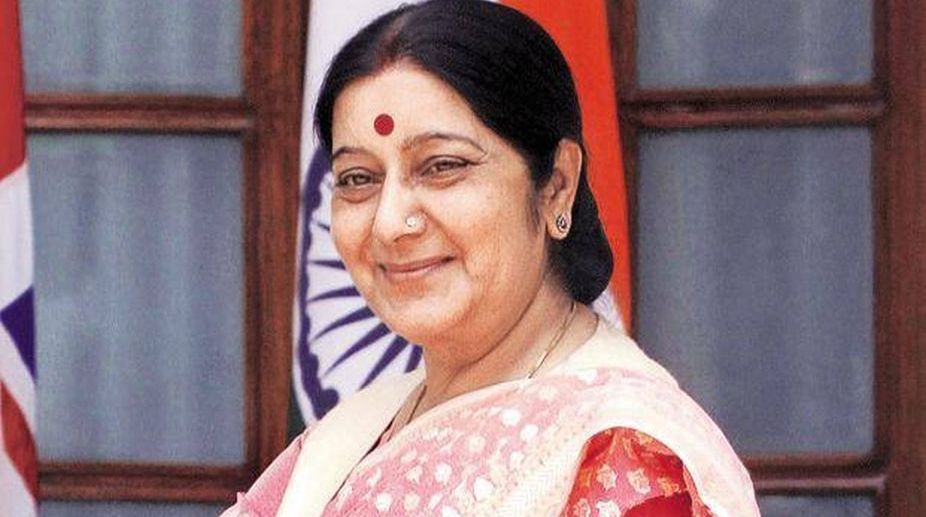India on Wednesday called terrorism as the ‘mother of all disruptions’ and, in an obvious reference to Pakistan, said what was even more dangerous was the fact that the scourge was being actively supported and sponsored by states.
“Ensuring zero-tolerance towards terrorism is the call of the day. To expect that an activity which draws on all the ills of the world—fanaticism, crime, bloodshed and illegal trade—will not have a corrosive impact beyond its intended arena is unrealistic,” External Affairs Minister Sushma Swaraj said while addressing the ‘Raising Dialogue’, organised by the External Affairs Ministry and the Observer Research Foundation (ORF).
Advertisement
She recalled that there was a time when terrorism was seen as other people’s problem or a law and order situation. Not just that, it was also actively utilised as an instrument of statecraft. That time has long gone by.
Terrorism anywhere could threaten societies everywhere, she observed, adding the challenge was even more serious in a digital age, with the greater propensity to radicalisation. “However, there are still old assumptions and established mindsets in this regard. Partly because of the 9/11 precedent, we associate terrorism with ungoverned spaces,” she regretted.
“The more recent example of ISIS has reinforced this stereotype,” she added.
Swaraj also spoke at length about the threat of proliferation of weapons of mass destruction, calling it another disruptive element. “While it has its own history, we should not ignore the fact that proliferation threats are encouraged in large measure by arguments that favour the actual use of WMDs, especially nuclear weapons,” she added.
Alluding to New Delhi’s charge that Pakistan had assisted North Korea in developing its nuclear programme, the Indian minister said many contemporary developments have their roots in long-standing proliferation linkages that the world deliberately chose to overlook. “Like terrorism, nuclear proliferation cannot be addressed effectively in a segmented manner. Fuller disclosure and greater accountability are a must,” she added.
Swaraj also had a dig at China without naming the country over its ambitious Belt and Road Initiative (BRI), which is being opposed by New Delhi since the China-Pakistan Economic Corridor (CPEC), the flagship project of the initiative, runs through the Indian territory under Pakistan’s illegal occupation.
“In a globalised economy, it is important that the building of connectivity is a consultative process. Not just consultative but also one based on norms of transparency, good governance, commercial viability, fiscal responsibility and respect for sovereignty and territorial integrity,” she added.











